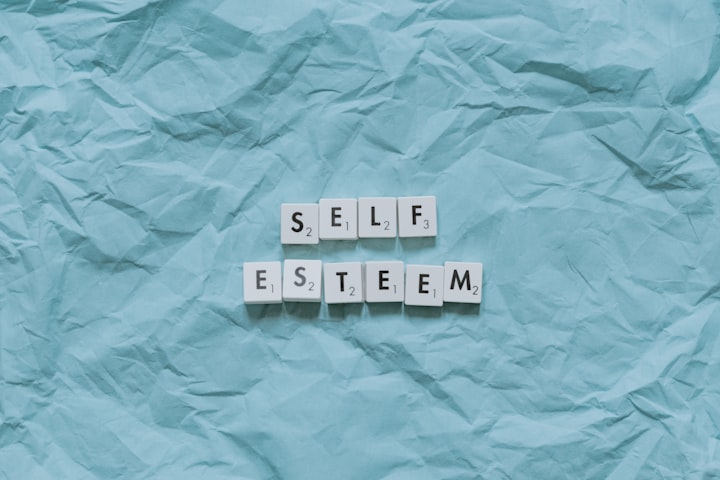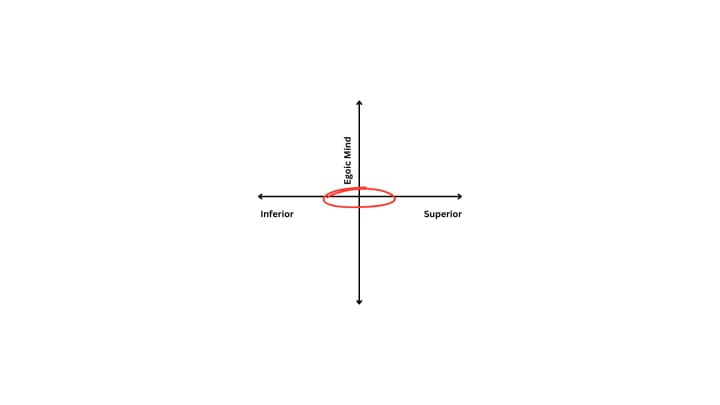Self-Esteem in a Nutshell
and what it looks like in our daily lives

We heard a lot about self-esteem recently, mainly because as a society we are growing to be more aware and more vocal about one’s mental wellness. We advocate vulnerability and being authentic, and more and more people come out of their shells and realize, that maybe, there is something about their self-esteem that makes them act a certain way, or perhaps our therapists or psychiatrists tell us so. But at the same time, we don’t really know what it encompasses, and how much it has affected our daily lives.
What really is self-esteem? Self-esteem plays a big role in how we see ourselves. The dictionary states: confidence in one’s worth and self-respect. It is as simple as this, but also as complicated as this. We could say, that someone with lower self-esteem tends to have more self-doubt, and they usually do not think they are worthy enough to do a certain thing, such as asking for a promotion or having the healthy relationship everyone deserves. But life is not that simple, is it? Allow me to explain something further that might shock you.

In a broader sense, self-esteem comes in a few different terms that all encompass the same core value: self. They are:
◆Self-Love
◆Self-Worth
◆Self-Concept
◆Self-Respec
◆And more…
“But I know I am awesome, I am more popular than her, people always come to me for suggestions, and my ideas are always right, I believe I am well-liked and very respected.” I truly believe that you believe that. But does that sometimes make you wonder why, you have not found the fulfilling relationships you deserve, or that you usually have more conversations in heated situations rather than living in a more peaceful environment? The fact is, people with superior complexity, have low self-esteem too. I know this is going to crush you, and you will want to hit return on this article. But if you are curious, please read on.

When I found out the life I was living was conditioned by having low self-esteem, I set out to work out why, to find a way to overcome it, to save myself, and to live a more joyful life. The first thing I did was to learn about cognitive behavior therapy (and in return, I got to help others too). In cognitive behavior therapy, one important lesson they teach is a person’s belief about themselves and how they act and react toward the world. Two characterizations: A person with a superior personality who views their abilities and accomplishments are substantially better than others, hence they tend to act as boastful, unwilling to listen to others, and supremacy, etc., and you guessed it, a person with an inferior personality who feels more insecure and inadequate with their abilities and accomplishments, hence the possess more self-doubt.
Whether on which side of the spectrum you are operating from, inferior or superior, your behaviors are conditioned by your perceptions of the world, your perceptions of the world and yourself, are made up by your egoic mind. I would love to talk about the egoic mind in more detail, but for now, know that egoic is not equal to egotistic; the egoic mind is the mind we have identified with: a (good) parent, a (capable) worker, a (lesser-than) partner. These perceptions and identities, are tell tales of your self-esteem. If inferior and superior personalities are a horizontal line, the egoic mind is the vertical line that intersects in the middle of the horizontal line. The circle right in the middle is where we sustain healthy self-esteem. Below is a diagram illustrating the relationship:

Here is a scenario. You have been going out with this lovely woman for a couple of months, and things are getting more serious. You have been an absolute gentleman, and she has shown you her interest by showering you with compliments and saying that you are too good to be true. You decided to take one step further, and ask her to be “official”. She said no. So the dinner ended awkwardly. What would be your reaction? I understand that you may need more context, but, at the moment of her saying no, how did you feel? After hearing many of my friends’ dating stories, I can offer you two responses to this type of scenario. One would express their disappointment by saying (or thinking) “Well I am glad you said that because I think you are ….. (describing a few things you did not like about her, which you never thought about until this point) I did not think we are a good match”, or, you could be responding with a question, “did I do something wrong? Is there something I can do to win you back?”
The first reaction feels a bit passive-aggressive, doesn’t it? Passive aggression is another form of aggression that indicates a largely superior personality. The other reaction feels like one is expecting something is wrong with themselves without understanding more context, which indicates a sign of an inferior personality. Both reactions come from some form of low self-esteem. Why? Because if we were somewhere right in the middle (where inferiority and superiority meet, and where adequate self-esteem stands, we would have reacted this way: “Thank you for being honest, and thank you for spending some wonderful time with me”. It seems impossible to say something like this when you feel like you were just beaten down. Well, welcome to the world of ego and self-esteem. It is an art form, and it is a practice.

The moral of the story, and the biggest lesson I learned on the path of self-discovery is, that if we operate from the idea that we cannot lose (lose face, a race, an argument, a project to someone else, your partner to someone else..etc) our suffering will never end. We could continue “fighting” for the wins throughout all our lives, but we need to know why battling for the upper hand is so important. Are we really fighting for what’s right? Or are we indemnifying our self-esteem?
Overall, a person’s self-esteem paints a picture of how we see ourselves, that being the case, it translates into how we see the world, and how we operate and feel about our daily lives. Sadly, more often than not, people with low self-esteem tend to see their world, inside and out, a little bit less positively than those who have healthy self-esteem. And what we are doing today, is to find all the options to support the rebuild of someone's self-esteem. This leads to the purpose Acts of Affirmation, the day-to-day acts that support the growth of one's self-esteem, a tapestry of self-care acts that intertlaced with each other to build on our perspectives of ourselves.
(Original post: https://www.yushinewellness.com/post/self-esteem-in-a-nutshell-and-how-it-affects-our-lives)






Comments
There are no comments for this story
Be the first to respond and start the conversation.